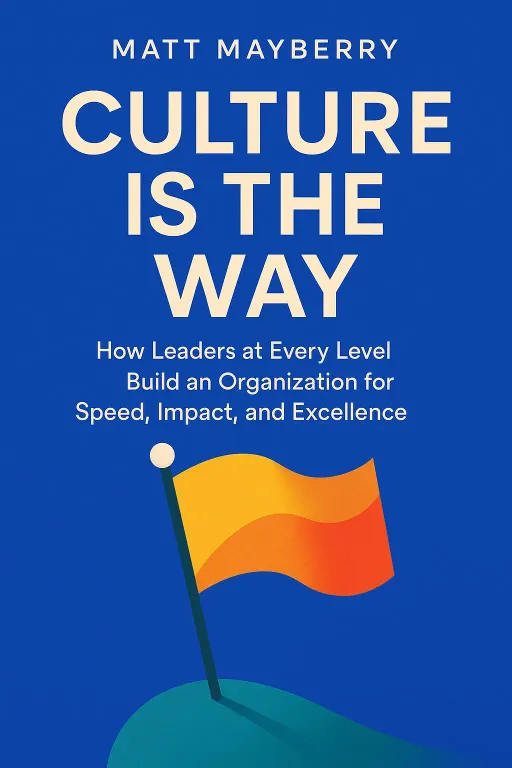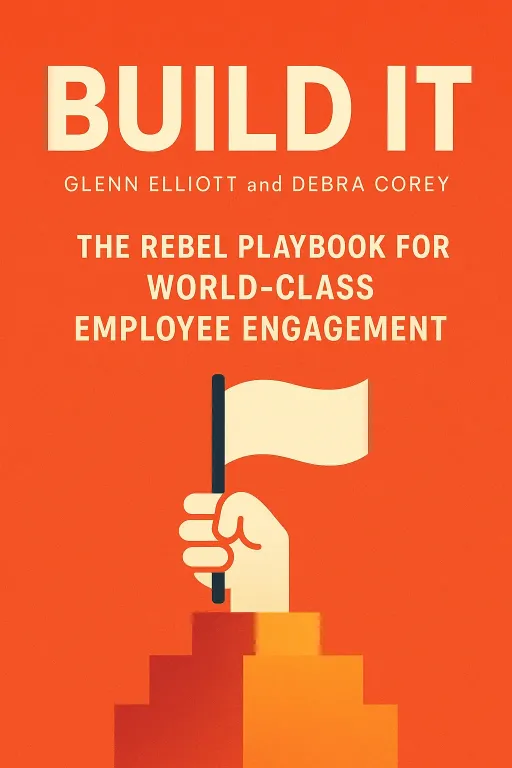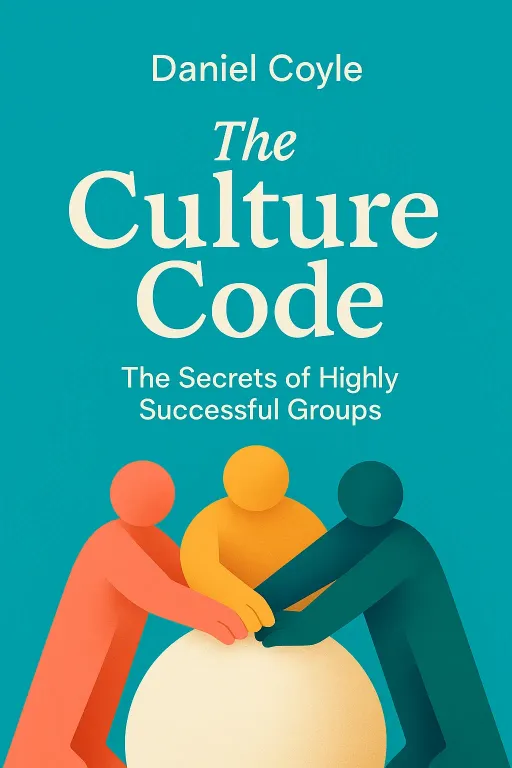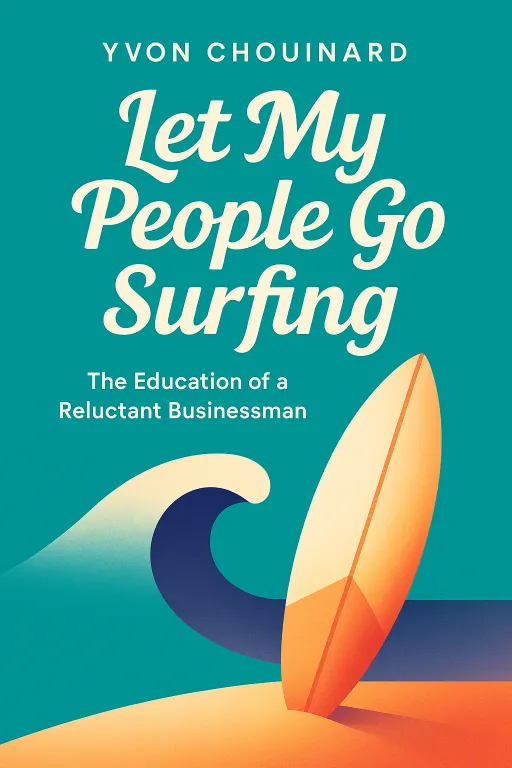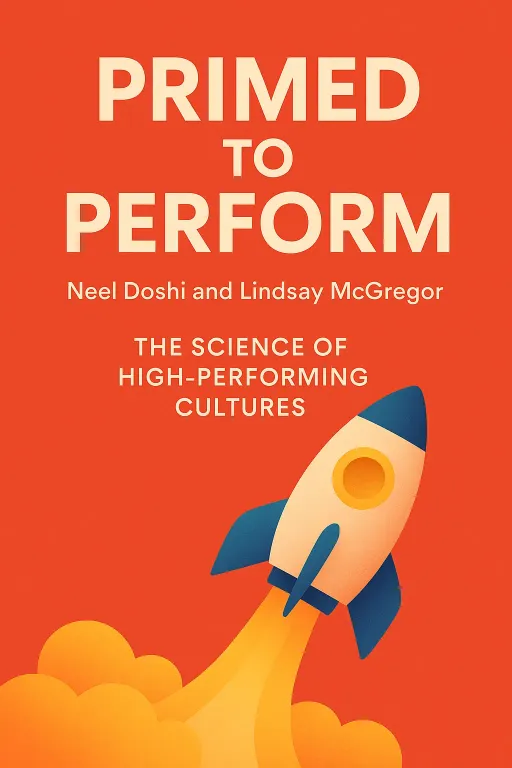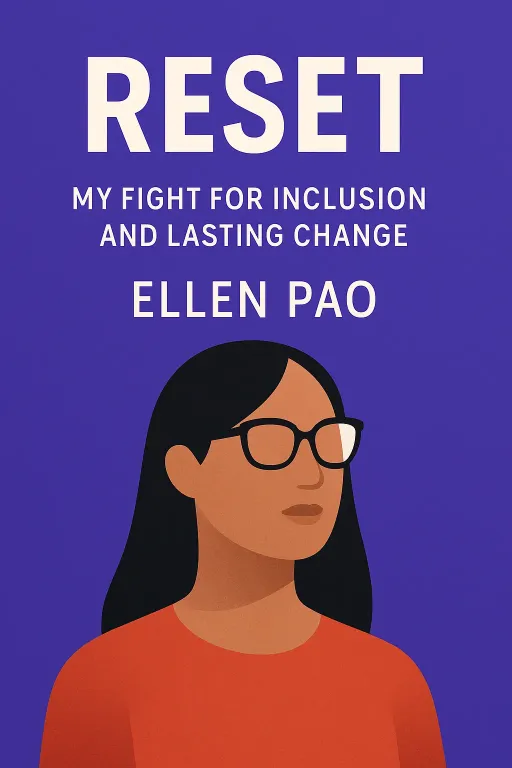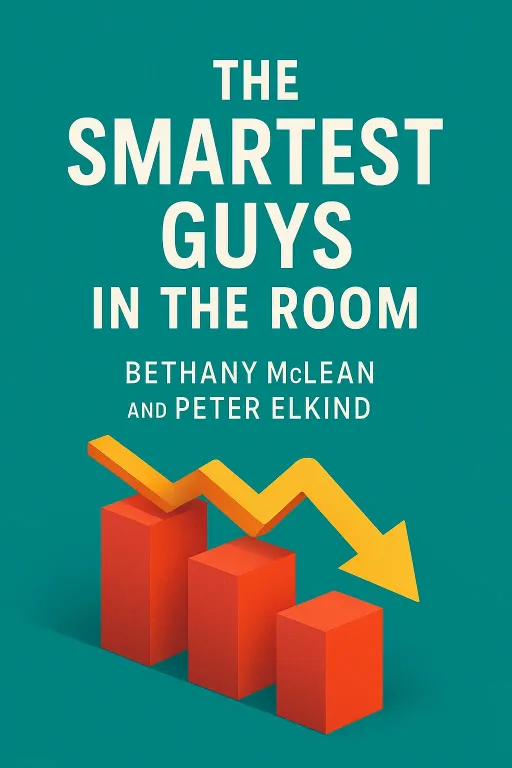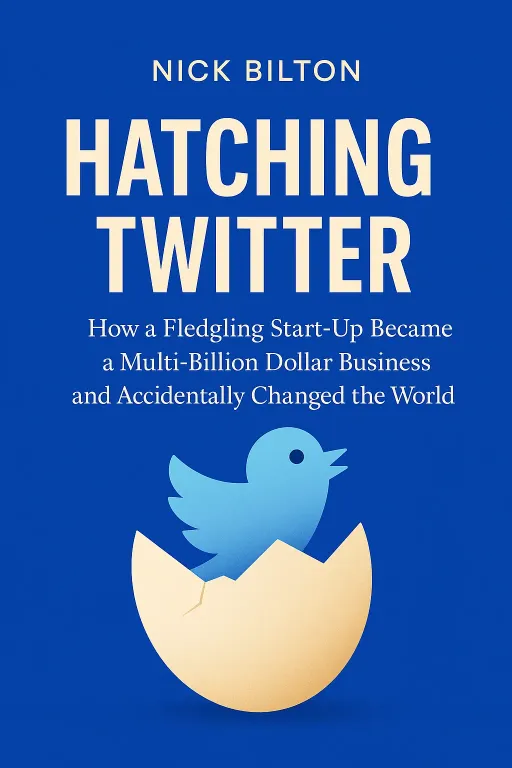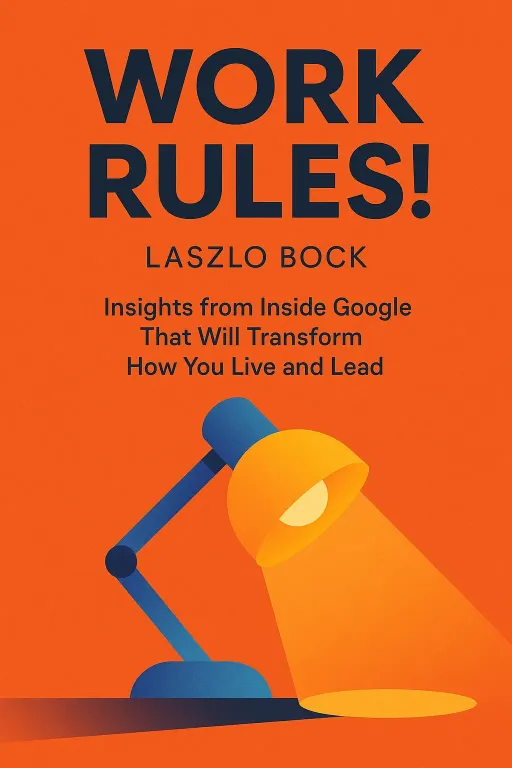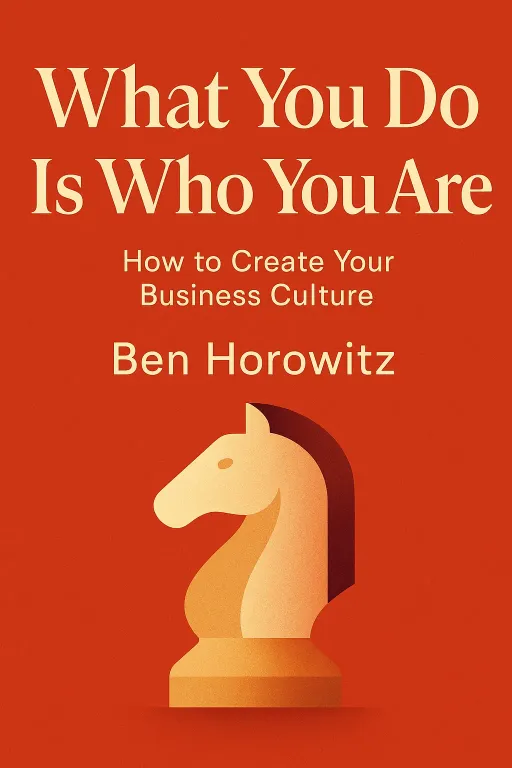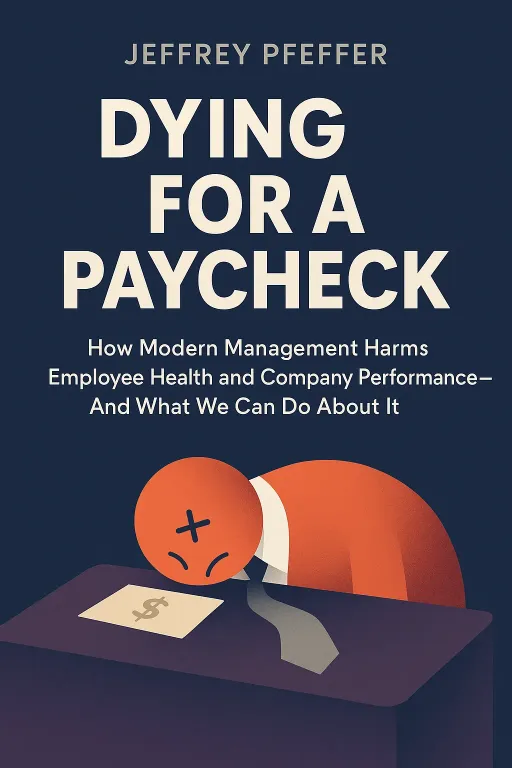
Your Boss vs. Your Doctor
10 minHow Modern Management Harms Employee Health and Company Performance—and What We Can Do About It
Golden Hook & Introduction
SECTION
Michelle: Your boss is more important for your health than your family doctor. Mark: Whoa, hold on. That sounds like something you'd see on a motivational poster, but I have a feeling you're being literal. Michelle: Completely literal. That’s not a metaphor—it’s a research finding from the Mayo Clinic. And today, we’re exploring the terrifying data that shows just how true that is. Mark: That’s a heavy way to start. I'm already re-evaluating my last performance review. What's this from? Michelle: This all comes from a powerful, and frankly, quite unsettling book called Dying for a Paycheck by Jeffrey Pfeffer. He’s a highly respected professor of organizational behavior at Stanford Graduate School of Business. Mark: A Stanford professor, so this isn't just some pop-psychology rant. He's got the data to back up a claim that bold. Michelle: Exactly. And his whole career has been about evidence-based management. He wrote this book because he was seeing a massive gap between what we know makes a healthy, productive workplace and what companies are actually doing. He saw it as a call to arms against a silent epidemic. Mark: A silent epidemic. That’s a strong phrase. Let’s get into it.
The Silent Epidemic: How Work is Literally Killing Us
SECTION
Michelle: Pfeffer starts by painting a picture that is, frankly, a public health emergency. He and his colleagues did the math, and they estimate that toxic workplace conditions in the United States alone contribute to approximately 120,000 excess deaths per year. Mark: Wait, say that number again. One hundred and twenty thousand? Annually? That's more than the number of deaths from kidney disease or influenza. That's a staggering figure. How is that even possible? Michelle: It’s from a combination of factors. The researchers identified ten major workplace stressors and calculated their impact. Things like layoffs, lack of health insurance, long work hours, and work-family conflict. The economic cost is just as mind-boggling—around $190 billion in excess healthcare costs each year. Pfeffer makes a powerful comparison: he says these workplace exposures are as harmful to your health as secondhand smoke. Mark: And we regulate secondhand smoke! You can't smoke in an office, but apparently, your job can slowly kill you in other ways. That’s wild. Can you give me an example? How does a layoff translate to a death statistic? Michelle: It's the profound stress of economic insecurity. He tells this heartbreaking story about a steel plant in New York that was closed by its new owner, ArcelorMittal. The plant had 260 workers. Just three weeks after the closure was announced, a 56-year-old worker named George Kull died of a heart attack. Mark: Oh, man. Just three weeks. Michelle: And it didn't stop there. In the following weeks, another 42-year-old worker had a heart attack but survived. A 55-year-old also died from a heart attack. The stress of losing their livelihood, their identity, their future—it manifested physically and fatally. Mark: That's horrifying. It's not just a number on a spreadsheet; it's people's lives. And I'm guessing this isn't just a blue-collar problem, right? The book's title implies this is happening to everyone. Michelle: Absolutely. The problem cuts across all job types. Pfeffer shares the story of a senior finance professional at a fast-growing company. The demands were so impossible, he was pulling all-nighters constantly. To cope, he started using stimulants, which escalated to cocaine, and then alcohol to numb the pain from his abusive supervisors. He was literally self-destructing to keep his job. Mark: That’s a nightmare. You think a high-paying finance job is the pinnacle of success, but he's trading his health and sanity for it. It sounds like the workplace itself becomes an addiction—or at least, it fuels one. Michelle: It does. And it’s not always that dramatic. He also mentions a TV news producer who was so dedicated he’d travel anywhere at a moment's notice. The result? He had no time for proper meals or exercise and gained sixty pounds. His marriage was falling apart. The job was consuming him piece by piece. Mark: So whether it's a sudden shock like a layoff or a slow burn from overwork, the outcome is the same: our bodies and minds are paying the price for our paychecks. If the problem is this huge and this costly, why isn't it being fixed? What are the actual mechanisms here? It can't just be 'stress.'
The Manager's Dilemma: The Two Levers That Make or Break a Workplace
SECTION
Michelle: That is the million-dollar question, and it’s where the book gets really insightful. Pfeffer argues it comes down to two fundamental human needs that modern management systematically crushes: job control and social support. Mark: Okay, so it’s not about the free snacks or the nap pods. Michelle: He calls those "trinkets." They're nice, but they're window dressing. They can't compensate for a fundamentally toxic environment. People aren't that easily seduced. What they truly need is a sense of agency and a sense of community. Mark: 'Job control.' That sounds a bit abstract. What does that actually look like in practice? Michelle: It’s about having autonomy. The discretion to decide how you do your work, when you do it, and what you do. And the evidence for its importance is just stunning. Pfeffer details the famous Whitehall Studies from the UK. Mark: I think I’ve heard of those. Weren't they about British civil servants? Michelle: That's the one. Researchers followed thousands of them for decades. They found that employees in lower-ranking jobs—the clerks, the assistants—had a much higher risk of dying from heart disease than their bosses in high-ranking positions. Mark: Okay, but that could be due to other things, right? Like diet, or smoking, or exercise habits. Michelle: That’s what everyone thought! But the researchers controlled for all of that. And what they found was shocking. The single biggest predictor of developing heart disease wasn't smoking or cholesterol. It was the lack of job control. The lower-level workers had their days rigidly structured, with little to no say in their tasks. That powerlessness was a direct pathway to illness. Mark: So you're telling me that a micromanager could literally be giving their employees heart disease. That's a terrifying thought. But isn't that just human nature for managers? They don't want to give up control. They think they know best. Is it just about ego? Michelle: Pfeffer says that's a huge part of it! He talks about these psychological biases where managers systematically overestimate their own value and the need for their supervision. They resist delegating. But then there's the other, equally important side of the coin: social support. Mark: Having friends at work, basically. People you can count on. Michelle: Exactly. And some common management practices are like a wrecking ball to that. Think about the forced ranking system that was famous at General Electric under Jack Welch. Mark: Right, the 'rank and yank' system. Where you grade all your employees on a curve and fire the bottom 10% every year. Michelle: Pfeffer quotes insiders who called it a "celebrity death match." It created this brutal, cage-fighting mentality. Your colleagues weren't your support system; they were your competition. Everyone was fighting for turf, trying to outwork each other, and terrified of landing in that bottom percentile. It completely shredded any sense of community or psychological safety. Mark: Of course. It creates a culture of fear, not collaboration. So you're stressed out, you have no control over your work, and the person sitting next to you is seen as a threat, not a friend. It's a perfect storm for misery. And it’s a choice a company makes. Michelle: It is absolutely a choice. And that’s the most frustrating part. Pfeffer shows examples of companies like Southwest Airlines, which has famously never had a layoff, or SAS Institute, which fosters an incredible culture of care. It is possible to do things differently. Mark: Which brings up the question from Chapter 7 of the book: if these places are so awful, why do people stay? I think we all know someone who complains endlessly about their job but never leaves. Michelle: There are so many reasons. Economic necessity is the big one, of course. But Pfeffer also points to psychological traps. There’s inertia—you’re so exhausted from your toxic job that you don't have the energy to look for a new one. There's ego—companies like GE would challenge people who wanted to quit by asking, "Aren't you good enough to be a leader here?" And there's social proof—if everyone around you is working 80-hour weeks, it starts to feel normal.
Synthesis & Takeaways
SECTION
Mark: So it's this combination of economic pressure and psychological manipulation that keeps people trapped. It’s a really bleak picture. Michelle: It is, but the core insight of the book is ultimately an empowering one. We're not dying from hard work; we're dying from working in environments that strip us of our autonomy and our human connections. Pfeffer calls these workplaces "social polluters," and I think that's the perfect term. They release invisible toxins into our lives. Mark: I like that framing. The book did get some criticism from readers for being a bit dry and academic, which is fair. It's heavy on data. But when you hear these stories, you realize the data is just quantifying a massive, hidden human tragedy. The numbers have names and faces. Michelle: And Pfeffer's proposed solution is to start treating it like the pollution it is. His first step is simple: measure it. Just like we measure CO2 emissions, we need to start measuring and publicizing employee health and well-being. Because what gets measured gets managed. Mark: It makes you wonder what would happen if companies had to publish a "human sustainability report" next to their financial one. Imagine if you could see a company's employee burnout rate or average stress level before you accepted a job there. Michelle: It would change everything. The power dynamic would shift. And that’s the ultimate goal. It’s about making different choices, both as individuals and as a society, that value human life as much as we value profit. Mark: It really makes you think... what small bit of control could you reclaim in your own work life tomorrow? And for any managers listening, what's one decision you could delegate right now to give someone on your team that vital sense of autonomy? Michelle: A powerful question to end on. We'd love to hear your thoughts on this. Have you ever felt the health effects of a toxic job? Find us on our social channels and share your story. Let's get this conversation out of the shadows. Mark: This is Aibrary, signing off.
